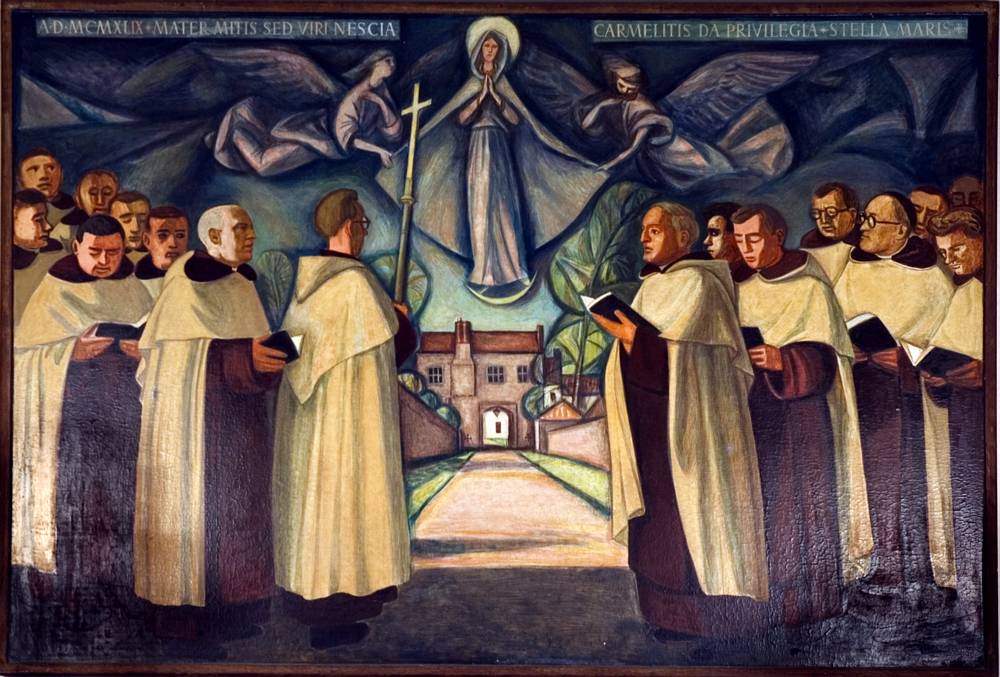 Around the beginning of the 13th century, a group of anonymous Latin hermits gathered together next to the spring of Elijah on Mount Carmel to live “a life of allegiance to Jesus Christ” (Carmelite Rule, 2). They soon approached the Patriarch of Jerusalem for a “rule of life” (formula vitae) according to their “avowed purpose” (propositum), and built an oratory which they dedicated to Mary as the “lady of the place” (cf. Carmelite Rule, 3 & 14). As they gradually grew, assimilated to the mendicant movement, and spread throughout the world, the Carmelites came to see themselves as heirs of an ancient biblical legacy of contemplative prayer and prophetic service, under the patronage and example of Elijah and Mary.
Around the beginning of the 13th century, a group of anonymous Latin hermits gathered together next to the spring of Elijah on Mount Carmel to live “a life of allegiance to Jesus Christ” (Carmelite Rule, 2). They soon approached the Patriarch of Jerusalem for a “rule of life” (formula vitae) according to their “avowed purpose” (propositum), and built an oratory which they dedicated to Mary as the “lady of the place” (cf. Carmelite Rule, 3 & 14). As they gradually grew, assimilated to the mendicant movement, and spread throughout the world, the Carmelites came to see themselves as heirs of an ancient biblical legacy of contemplative prayer and prophetic service, under the patronage and example of Elijah and Mary.
Today the extended Carmelite family has many branches, and its members have included great artists, poets, ecclesiastical and civil leaders, philosophers, theologians, saints, mystics, martyrs, and “doctors of the church” (Teresa of Avila, John of the Cross, and Thérèse of Lisieux), whose message speaks to contemporary people of all faiths and walks of life. The Carmelite tradition is now recognized as one of the church’s most important treasures and resources.

Established within the School of Theology and Religious Studies at the Catholic University of America, the Center for Carmelite Studies promotes academic studies and research related to this rich Carmelite tradition, as well as pastoral application of the results, through courses, programs, lectures, workshops, and publications, as well as supervision and scholarship support for doctoral projects on Carmelite topics. The Center is directed by the holder of the endowed Chair of Carmelite Studies, assisted by an Advisory Council that provides strategic guidance in the shaping of the Center’s activities and fulfillment of its goals. The Carmelite Province of the Most Pure Heart of Mary is the sponsor of the endowed Chair and Center for Carmelite Studies.
